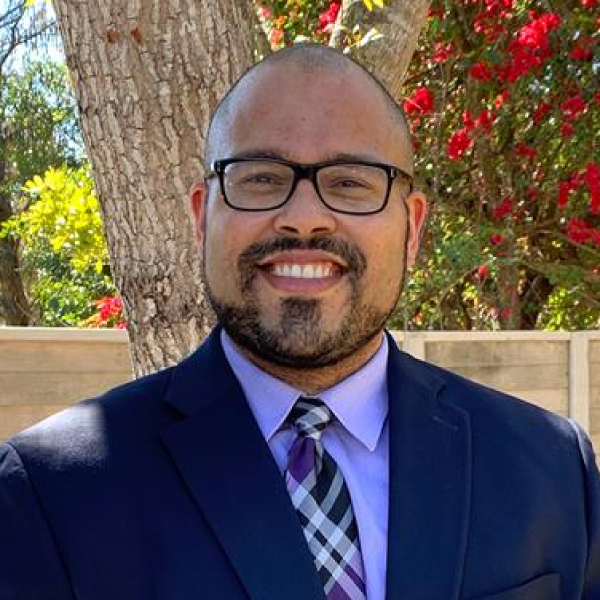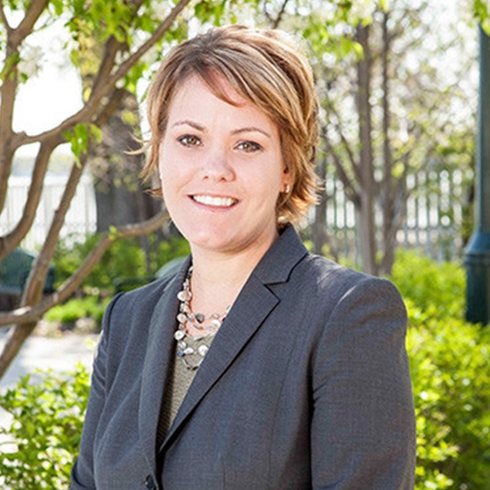![]()
Estate planning is the process of planning for important medical, financial, and legal choices that need to be made upon a person’s death in order to transfer their property and legacy to the next generation according to their wishes. While many find estate planning daunting or uncomfortable, the truth is it plays a vital role in helping you to protect your legacy and to provide for your friends, family, and loved ones after you’re gone.
At Johnson/Turner Legal, our estate planning lawyers in Minnesota understand that, when you turn to us for estate planning, you’re putting your legacy in our hands. It’s a responsibility we don’t take lightly. We assign an estate planning attorney, two paralegals, a client engagement specialist, and a life coach to every estate planning case to make sure you get a variety of legal perspectives.
Set up a consultation to learn more about how a Minnesota estate planning attorney can guide you through the estate planning process!
Contact us online or via phone at (320) 299-4249. We have offices in Forest Lake, Blaine, Lake Elmo, Wayzata, and Woodbury serving the Twin Cities area and all of Minnesota.
At Johnson/Turner Legal, our experience in estate planning has allowed us to identify common interests people often share during the estate planning process. We use these interests to help you answer questions and identify how to proceed with your estate plan.
We ask every client about the following topics:
How you answer these questions determines how we proceed with the estate planning process moving forward.
For example, if you worry that there may be conflict among your family/heirs when you pass, then we’ll work with you to create airtight wills and trusts in order to ensure that your assets and property are appropriately divided among your family (or other beneficiaries). If you have anxiety about your life goals or worries about the future, then our life coach will work with you to address those issues and reclaim control of your life.
A will is a document outlining your wishes. An estate plan is a strategic and thoughtful process that typically incorporates a will plus a power of attorney (appointing an agent to sign documents on your behalf if you’re incapacitated or incompetent), and a health care directive. In some cases, it may also include a trust.
Plus—and this is critical—a proper estate plan ensures that your assets are appropriately titled and given clear direction on beneficiaries.
No family or person is the same, so no estate plans are the same. But through our years of creating precise and thoughtful estate plans, we have been able to identify some key features that apply to most people, and we’ve shaped them into plans that address some of the common estate-planning goals we’ve seen.
Our Minnesota estate planning lawyers will help you plan for the future of your estate, including some, all of, or even more than what’s listed here.
Estate planning is a complex, multi-faceted process. Every good estate plan encompasses five essential elements:
When most people hear the phrase “estate planning,” they immediately think of wills. Every individual over the age of 18 should have a will to help them decide how property and assets will be divided among friends, family members, and loved ones should they pass on or become mentally incapacitated.
Without a will, your estate will be decided based on state law. That means Minnesota state officials will decide:
A will allows you to take control of the process. With a will, you get to make the following decisions:
To draft a will in Minnesota, you must meet the following requirements:
An experienced estate planning lawyer near you can help you draft a comprehensive, secure will that accurately distributes your assets. Importantly, a Minnesota estate planning attorney can also help you modify an existing will if circumstances change, and you wish to update your will.
You should keep your will in a secure place. In Minnesota, many court administrators will hold a will for little to no expense. Your estate planning attorney in MN may also be willing to safeguard your will for you. Be sure to let multiple people know who has your will.
Trusts are often overlooked in the estate planning process, but they can be a fantastic way to preserve and distribute assets.
Living trusts allow you to determine how assets are distributed and place those resources in the care of a trustee, who will hold them until a specified event occurs. For example, you can use a trust to set aside money for your child and specify that once your child turns 25, they get access to the trust fund.
Non-revocable trusts are another option. These immediately remove assets from your ownership and place them under the care of the trustee. Revocable trusts are ones that you can still alter throughout your life.
While it might seem like a revocable trust is an obvious choice, irrevocable trusts have their benefits. For example, if you need to file for bankruptcy, assets in an irrevocable trust might be exempt from the bankruptcy process.
Some benefits of a trust include:
Many people think trusts and wills are an “either-or,” but in truth, they work best together as complementary elements in an estate plan. A trust enables you to have control over assets during your life that a will can’t provide, but a will might be a more effective tool post-death. Your estate planning attorney in Minnesota can help you draft a legally binding trust when they help you develop and enact your will.
The Health Care Directive establishes what types of care you receive should you become incapacitated or unable to make decisions for yourself.
In a Health Care Directive, you appoint one or more Health Care Agents and a Successor Agent to make medical decisions and carry out any last wishes you have. Importantly, the Health Care Directive waives HIPPA restrictions, allowing medical professionals to provide your Health Care Agent with information that would normally be restricted.
A Health Care Directive helps ensure that you have the best possible quality of life if you become incapacitated and that your last wishes are faithfully observed and carried out.
Power of Attorney grants another person the right to act on your behalf on legal and/or financial matters. For example, Power of Attorney documents allow you to specify who takes care of your bills if you become incapacitated, or who makes financial decisions if you’re unable to.
Like a Health Care Directive, you can appoint one or more Agents to have Power of Attorney. The Power of Attorney is immediately effective upon executing it.
A Transfer on Death Deed is a legal document you execute that specifies a beneficiary to inherit your property from you after death. A TODD can allow you to circumvent the probate process entirely.
In probate, your beneficiaries must take your will to court to prove it is valid. Probate is often an arduous process, particularly when bad actors try and discredit the will or drag out the process. Using documents like a trust and a TODD can help you avoid the probate process entirely, ensuring things go smoothly if you’re incapacitated or pass on.
At Johnson/Turner Legal, we’re proud to offer comprehensive elder law services. While some parts of estate planning also apply to elder law, certain processes—such as helping an elderly person obtain Medicaid—are unique to elder law. To learn more about elder law, please visit our Elder Law page.
At Johnson/Turner Legal, our team of Minnesota estate planning lawyers will do whatever we can to help you preserve your legacy. Our flat-fee pricing model provides our clients with absolute transparency, so you can feel confident moving forward with your estate planning case.
With offices in Forest Lake, Blaine, Duluth, Lake Elmo, Rochester, Wayzata, and Woodbury, we have estate planning lawyers near you!

“To build trust and provide comfort to our clients and legal professionals by reinventing the delivery of legal services.”

Attorney

Partner, Attorney

Partner, Attorney

Senior Client Service Representative

Chief Operating Officer

Client Engagement Specialist

Paralegal Assistant

Client Service Representative

Intake Specialist

Intake Specialist

Head of Intake Specialist Team

Senior Paralegal

Senior Paralegal

Partner, Attorney, Family Law Mediator

Senior Paralegal

Associate Accountant

Client Service Representative

Client Service Representative

Senior Paralegal

Operations Manager

Senior Paralegal

Client Engagement Specialist

Attorney

Senior Paralegal

Senior Paralegal

Engagement Support Specialist

Attorney

Director of Legal Practice Operations

Partner, Attorney

Partner, Attorney & Family Law Mediator

Client Engagement Specialist

Senior Paralegal

Attorney

Partner, Attorney

Attorney

Marketing Manager

Client Engagement Specialist

Coach

Attorney

Our employees are the key to the success of our clients, and ultimately of the firm. We strive to create a culture that instills a sense of belonging. We want to provide our employees with a safety net, which empowers them to take risks and make leaps, while knowing that others will support, assist and, if need be, catch them. Maintaining a firm culture of shared vision, open communication, positive work environment and friendships will foster a cohesive team of professionals working together to champion the successes of our clients, our community partners, and the firm.

We believe the legal industry needs to break free from its stale and uncreative practices in order to serve the needs of today’s clients. We seek to lead the way in revolutionizing the way consumers experience legal representation. We strive to reinvent all major facets of the delivery of legal services, including how we involve our clients in our representation through information sharing and communication, how we produce legal documents, manage cases, and price our services. We understand the challenges that come with innovation, and strive to support one another’s new ideas.

We strive to ensure that our attorneys and staff are fully versed in their practice areas to provide our clients the best advice and representation. The knowledge necessary to do so includes not only mastering the letter of the law, but also understanding trends in the interpretation and application of the law. We are life long learners who know there will never come a day when we have all the answers. We nurture and rely on our strong network of relationships within the firm and beyond. We study; we reflect; we converse; and we challenge one another. Our depth of knowledge sets us apart.

We all experiences life’s challenges, whether as part of our day-to-day routines or as a result of an event or transition in one’s life. Johnson/Turner Legal strives to help its clients and the legal profession rise through such challenges. Whether by pursuing fairness and justice, by solving problems or by bringing new perspective, Johnson/Turner Legal is dedicated to building trust and providing comfort.

We are a service organization, helping people through challenges and transitions in their lives. Our work must extend beyond our clients to champion the success of our colleagues, friends and the communities at large in which we live and work. We work to improve our communities through volunteerism and leadership.


Bloomington
8400 Normandale Lake Blvd., Suite #920 Bloomington, MN 55437
Open hours Mon-Fri 8am – 5pm
Map & Directions
Burnsville
1509 Southcross Dr W, Suite 204
Burnsville, MN 55306
Open hours Mon-Fri 8am – 5pm

Duluth
230 West Superior Street, Suite #400
Duluth, MN 55802
Open hours Mon-Fri 8am – 5pm


Eden Prairie
6385 Old Shady Oak Rd., Suite #250
Eden Prairie, MN 55344
Open hours Mon-Fri 8am – 5pm
Map & Directions

Forest Lake
56 E. Broadway Ave, Suite #206
Forest Lake, MN 55025
Open hours Mon-Fri 8am – 5pm


Maple Grove
11670 Fountains Drive, Suite #200
Maple Grove, MN 55369
Open hours Mon-Fri 8am – 5pm
Map & Directions

Minneapolis
100 S 5th St., Suite #1900
Minneapolis, MN 55402
Open hours Mon-Fri 8am – 5pm
Map & Directions

Rochester
975 34th Avenue NW, Suite #350
Rochester, MN 55901
Open hours Mon-Fri 8am – 5pm

Roseville
2355 Highway 36 West, Suite #400
Roseville, MN 55113
Open hours Mon-Fri 8am – 5pm

St. Paul
445 Minnesota Street, Suite #1500
St. Paul, MN 55101
Open hours Mon-Fri 8am – 5pm

Wayzata
1155 East Wayzata Blvd, Suite #10
Wayzata, MN 55391
Open hours Mon-Fri 8am – 5pm

Woodbury
7377 Currell Blvd., Suite #101
Woodbury, MN 55125
Open hours Mon-Fri 8am – 5pm
The information on this website is for general information purposes only. Nothing on this site should be taken as legal advice for any individual case or situation. This information is not intended to create, and receipt or viewing does not constitute, an attorney-client relationship.
© 2023 All Rights Reserved.